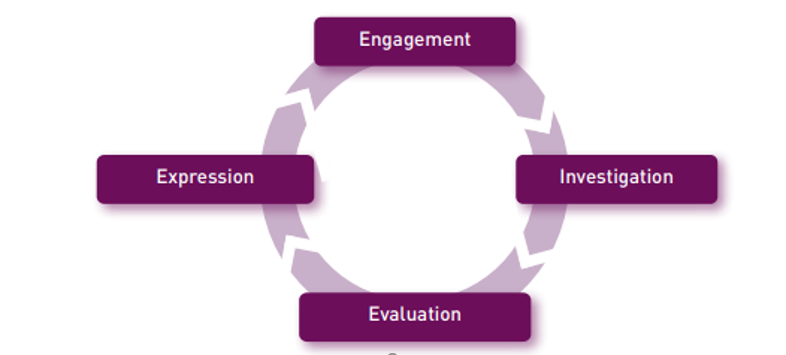RE
At Rolls Crescent our RE curriculum is underpinned by the CLIC trust ‘active ingredients.’ These active ingredients have been chosen using research based evidence on how children learn and how they commit knowledge to their long term memory.
Intent
At Rolls Crescent Primary School, our aim for our pupils is to learn from and about religion to broaden children’s understanding and appreciation of themselves and the world around them. We believe it is important to provide children with the opportunity to explore different religions represented in Great Britain and across the globe to develop both knowledge and understanding. Consequently, this approach allows children to appreciate how religious beliefs shape life and behaviour, fostering their ability to make reasoned and informed judgements regarding religious and moral issues. This, in turn, enhances their spiritual, moral, social, and cultural development, equipping them to thrive as global citizens in an increasingly interconnected world.
Through Religious Education at Rolls Crescent, children are encouraged to ask pertinent questions about the world, reflect on their own beliefs, and consider those of others, while making connections to our school values. Our curriculum is meticulously designed to promote creativity, imagination, enquiry, debate, discussion, and independence. Additionally, it is further enriched by trips to local places of worship and collaborative engagements with religious groups that visit our school termly, ensuring a comprehensive and immersive educational experience.
Implementation
At Rolls Crescent Primary School, we implement the Discovery RE programme, which adheres to the Manchester RE agreed syllabus. This framework is instrumental in structuring our scheme of work and incorporates an enquiry-based approach to teaching and learning.
Christianity is a fundamental component of our curriculum, with every year group engaging in its study. Notably, we provide distinctive treatment of key events such as Christmas and Easter each year, thereby facilitating progressive learning. In addition, we encompass the teachings of Buddhism, Hinduism, Islam, Judaism, and Sikhism within our programme. Where relevant, humanist perspectives are thoughtfully integrated into various enquiries.
Each enquiry is designed to span the equivalent of six lessons or can be block taught over three half days, thereby enhancing the learning experience. We ensure that each enquiry has a clearly defined learning objective, which maps the intended outcomes. Furthermore, we systematically incorporate opportunities for Spiritual, Moral, Social, and Cultural (SMSC) development throughout the curriculum, alongside each enquiry's contribution to the promotion of British Values. Our approach aims to foster a comprehensive and inclusive understanding of diverse religious beliefs and practices.
The 4-step enquiry process

Step 1 Engagement- (1 lesson) The children start by exploring the key question by relating to children’s own experiences. If they can relate to this human experience they will be better able to understand the world of religion into which the enquiry takes them.
Step 2 Investigation- (3 lessons) Guide the children through the enquiry, children gaining subject knowledge carefully selected to assist their thinking about the key question.
Step 3 Evaluation- (1 lesson) This lesson draws together the children’s learning and their conclusions about the key question of that enquiry. This lesson can be used to assess children’s learning.
Step 4 Expression- (1 lesson) Children are taken back to Step 1, their own experience, to reflect on how this enquiry might have influenced their own starting points and beliefs.
Impact
Our Religious Education curriculum is well thought out and inclusive, accommodating the needs of all pupils, including those with Special Educational Needs and Disabilities (SEND), and is designed to demonstrate clear progression. The impact of Religious Education ensures that children can draw connections between their own lives and those of others, both within their community and in the wider world. The skills acquired through this curriculum prepare students to become more well-rounded individuals in their future endeavours.
All children will have the opportunity to develop:
- A wider variety of skills related to the knowledge of different religions, as well as the ability to reflect upon and evaluate other people’s beliefs.
- A richer vocabulary that enables them to articulate their understanding more effectively.
- A deeper comprehension of the world, equipping them to engage with issues in an ever-changing society.
Furthermore, we assess the impact of our curriculum utilising a comprehensive whole-school assessment and monitoring sheet. This tool identifies students who require additional support, highlights prevalent misconceptions within the class, and outlines strategies for addressing these challenges. Information gathered through this process informs our summative data inputs, undertaken once per year.
-
RE Curriculum impact
download_for_offline
download_for_offlineRE Curriculum impact
- Religious education longterm plan 1 download_for_offline
download_for_offlineReligious education longterm plan 1
- RE-Vocab-progression download_for_offline
download_for_offlineRE-Vocab-progression
- Religious education longterm plan 1 download_for_offline
The Changing Lives in Collaboration (CLIC)
The Changing Lives in Collaboration (CLIC) Trust is a values-led Cooperative Multi-Academy Trust of four diverse primary schools in the North-West of England. Our core principle is that 'Together We Make The Difference' and our aim is to share our passion for education and learning, developing schools that make learning irresistible. We are committed to working in collaboration to improve outcomes for children. Our schools are unique and individual places where the curriculum and quality of education are tailored to the needs of the community.
Visit Site